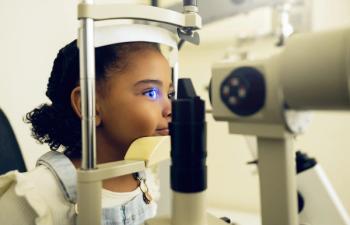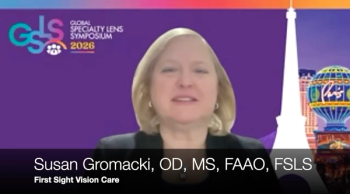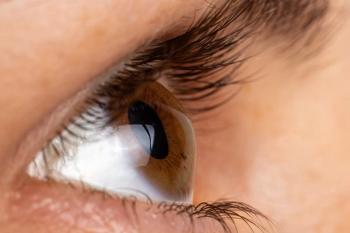
AAOpt 2023: Delving into the relationship between mental health and eye care
Jeffrey J. Walline, OD, PhD, discusses the 2023 AAOpt keynote speech, "Mental Health and Optometry."
At the 2023 American Academy of Optometry (AAOpt) meeting, Jeffrey J. Walline, OD, PhD, presented the plenary session, "Mental Health and Optometry," alongside Brandon Marshall, Bernadette Melnyk, and Dennis Pardo.
Video transcript
Editor's note: This transcript has been lightly edited for clarity.
Emily Kaiser Maharjan:
Hi, everyone, I'm sitting down with Dr Jeff Walline, who co-presented the keynote address, "Mental Health and Optometry" at the American Academy of Optometry meeting this year in New Orleans. Thanks for joining us, Dr Walline.
Jeffrey J. Walline, OD, PhD:
Oh, it's my pleasure.
Kaiser Maharjan:
Absolutely, so glad you could be here. Could you please share an overview of [your] keynote speech?
Walline:
Yeah, I think it's going to be a really important topic for optometrists to hear. The title is, "Mental Health and Optometry," which I think says a lot. But, there's different perspectives that we're going to provide during this plenary session.
The first is just going to be Brandon Marshall, who's a former NFL wide receiver and who has suffered through mental health crises. He's going to talk about his experience with mental health and sort of how he continually has to try to overcome some of the issues that result from mental health. So, the idea there is [that] even people on top of their game could suffer from mental health.
Then we're going to have a speaker Bernadette Melnyk from The Ohio State University. She is going to talk about wellness in optometry. So we actually surveyed fellows of the American Academy of Optometry, and she's going to present the results of that survey and compare and contrast with other professions to see how optometrists feel about their profession, about what they're able to accomplish, about their anxiety, and some of the issues with mental health that they report.
Then we're going to wrap it up with a session with Dr Dennis Pardo. He is actually somebody who was in optometry and now is a mental health counselor. So, he brings us a great perspective in that he's going to tell us what we can do as optometrists for our patients who are suffering from mental health issues.
We've sort of got the full 360 for optometry in terms of how are we suffering from mental health and how can we help our patients who are suffering from mental health, and also a little bit of personal experience. I hope it's great information that people will take a load away from, and ultimately help their own quality of life.
Kaiser Maharjan:
That sounds absolutely fascinating. So, why is mental health important to talk about particularly in the field of optometry?
Walline:
Yeah, I think it's really important right now because we are sort of in an era, coming out of COVID, when there were lots of mental health issues. We're currently in political turmoil, I would say. You know, in politics, we can't ever seem to come to consensus. Instead, we're always in opposition. I think that leads to a lot of stress and anxiety throughout society. So, until we learn to deal with opposition and come to consensus, I think what we have to do is help people get through the mental health issues that are related to feeling like you're not part of a community and feeling like people aren't listening to what you have to say, ultimately.
I think that's why mental health is important not only for optometrists, but also for our patients. Then, because our patients are suffering, optometrists are also suffering sometimes. When you're dealing with everybody else's crises that [can] sometimes cause a crisis of your own. We've got to make sure that we keep on top of that, and that we learn ways to sort of deal with those stresses so that we can ultimately be the best caregivers for our patients.
Kaiser Maharjan:
How does mental health care directly impact patient care?
Walline:
I think mental health care impacts patient care for lots of different reasons. If we ourselves are suffering from mental health issues, we aren't at our best and we can't provide the full-scope care that our patients need because we've got too many other things that are taking priority over a patient's needs.
Then secondly, it's our patients that are suffering. That might lead to eye conditions or, vice versa, eye conditions might lead to mental health issues. If we can help our patients with their eye conditions, we might also be able to help them with their mental health issues. But, they might also need some help beyond what we can provide. If we are able to recognize that and send them for help, then I think eye care in general will improve.
Kaiser Maharjan:
Absolutely. I totally agree. Dr Walline, thank you so much for taking the time today.
Walline:
All right. Thank you.
Newsletter
Want more insights like this? Subscribe to Optometry Times and get clinical pearls and practice tips delivered straight to your inbox.





























